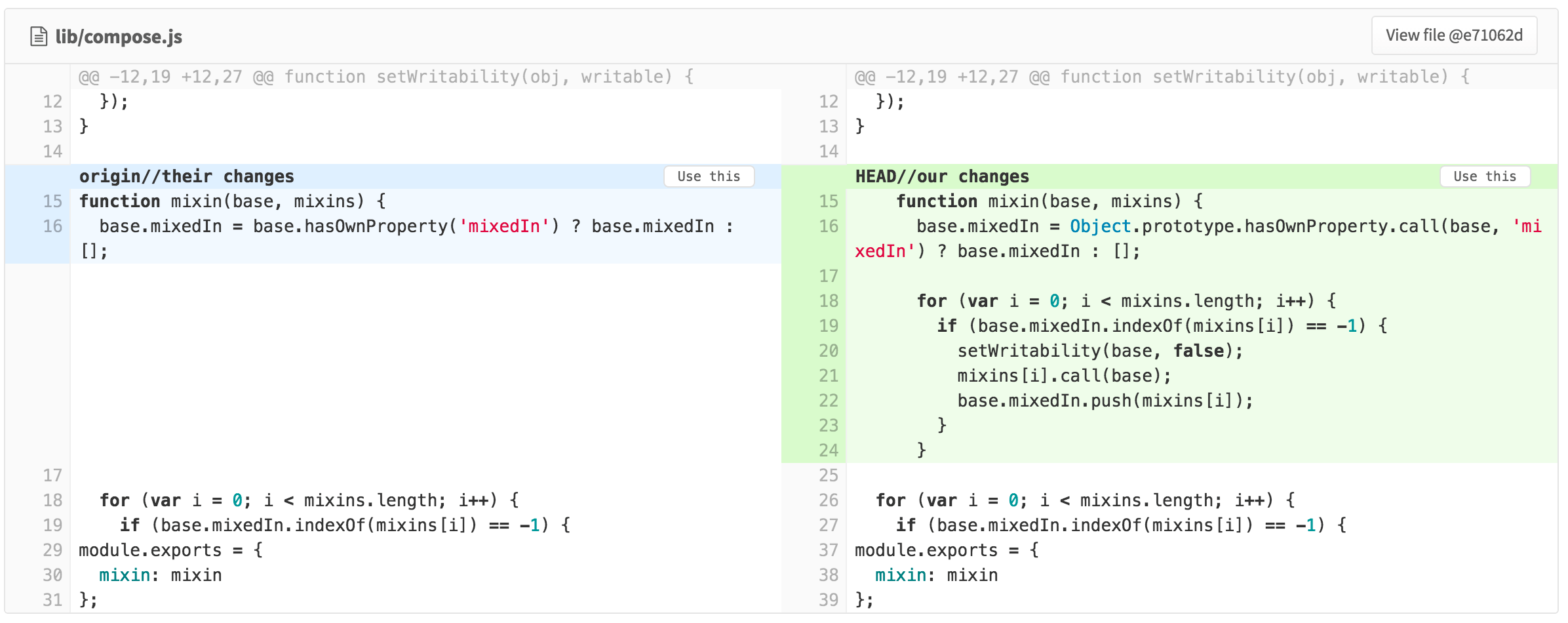2.3 KiB
Merge conflict resolution
Introduced in GitLab 8.11.
When a merge request has conflicts, GitLab may provide the option to resolve those conflicts in the GitLab UI. (See conflicts available for resolution for more information on when this is available.) If this is an option, you will see a resolve these conflicts link in the merge request widget:
Clicking this will show a list of files with conflicts, with conflict sections highlighted:
Once all conflicts have been marked as using 'ours' or 'theirs', the conflict
can be resolved. This will perform a merge of the target branch of the merge
request into the source branch, resolving the conflicts using the options
chosen. If the source branch is feature and the target branch is master,
this is similar to performing git checkout feature; git merge master locally.
Merge conflict editor
Introduced in GitLab 8.13.
The merge conflict resolution editor allows for more complex merge conflicts, which require the user to manually modify a file in order to resolve a conflict, to be solved right form the GitLab interface. Use the Edit inline button to open the editor. Once you're sure about your changes, hit the Commit conflict resolution button.
Conflicts available for resolution
GitLab allows resolving conflicts in a file where all of the below are true:
- The file is text, not binary
- The file is in a UTF-8 compatible encoding
- The file does not already contain conflict markers
- The file, with conflict markers added, is not over 200 KB in size
- The file exists under the same path in both branches
If any file with conflicts in that merge request does not meet all of these criteria, the conflicts for that merge request cannot be resolved in the UI.
Additionally, GitLab does not detect conflicts in renames away from a path. For
example, this will not create a conflict: on branch a, doing git mv file1 file2; on branch b, doing git mv file1 file3. Instead, both files will be
present in the branch after the merge request is merged.


